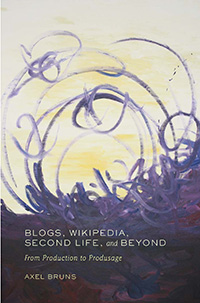You are here
Strategies for Engaging with Social Media: Two Reports for the Smart Services CRC
One of my research gigs for 2009 was to investigate the potential of social media for the Smart Services CRC, a cooperative research centre comprised of several Australian universities and industry partners from the media, finance, government, and IT fields. Ostensibly, the goal here was to translate what we know about the principles and processes of produsage into actionable ideas for organisations and businesses which aim to engage with social media communities, and I'm pleased to announce that the two reports produced from this research are now available under Creative Commons licences. (I mentioned the release of Report 1 in a previous posting in June.)
All of this was in recognition of the fact - and to say this is not a dig specifically at the CRC's industry partners, but speaks to an almost industry-wide malaise - that social media and the communities which use them remain very poorly understood by the organisations which attempt to use them, which has led to a great many failures in working with social media. (For mine, the jury is still out on whether even Facebook founder Mark Zuckerberg actually gets social media.)
Indeed, it seems like these failures are now used by some corporate planners to argue against engaging with user communities altogether - 'social media' has become a dirty word for them, as ReadWriteWeb reports just today. It's unlikely that such a head-in-the-sand strategy is going to be successful in the long (or even the short) term, of course - much as the music industry has found with filesharers, social media communities aren't something you can contain by ignoring them, suing them, or quarantining them from your own content using paywalls or other protection mechanisms.
So, what our two reports for the Smart Services CRC aim to do instead is to provide an accessible, level-headed introduction to social media which draws substantially on produsage theory but tries to present those ideas in as simple and straightforward a manner as possible (without, hopefully, dumbing them down too much). I've even gone as far as avoiding to use the term 'produsage' itself all too much, in order not to scare any overanxious corporate strategists who might be frightened off by their encounter with new ideas...
The reports are divided into a number of sections:
- Report 1, "State of the Art", begins by defining and outlining social media overall, and highlighting some of the key principles of participation in social media spaces (which readers of Blogs, Wikipedia, Second Life and Beyond will no doubt recognise); it then moves to profile a number of key social media sites and projects across a range of industries (including a few interesting failures). (See full Executive Summary.)
- Report 2, "User Engagement Strategies", returns even further to the fundamentals by outlining in broad strokes how online communities work: how they develop a shared understanding and identity, and maintain their cohesion. In the second part, we move on to presenting ten crucial recommendations to organisations which seek to engage with social media communities. (See full Executive Summary.)
The reports are available as PDFs from the links above, and as you can see, I've also posted up the Executive Summaries of both reports over on snurb.info. Please feel free to distribute them widely, and get in touch - any feedback is much appreciated.
What struck me in writing especially the second report with its material about online communities is that a revisiting and adaptation of good old-fashioned community and subcultural scholarship from the heyday of cultural studies (I'm thinking here of works like Dick Hebdige's Subculture: The Meaning of Style) to the new contexts of present-day social media spaces is long overdue. Online community studies seem to be going in and out of style on a decade-long cycle - they were very prominent in the late 90s through works such as Nancy Baym's masterful study of online daytime soap opera fan communities in Tune In, Log On, and a range of other high-profile researchers examining what were then called virtual communities, but I don't know that there's been that much work in that field during the 2000s.
What's emerging again now, though, are a range of exciting studies of communities in specific spaces - in the Australian context, for example, I'm thinking of projects like Leesa Bonniface's participant-observation study of interpersonal dynamics in the West Australian HeartNET community. Time to move this up a notch, perhaps, and move from such specific investigations to a more general theory of social media communities? Or have I missed a recent major publication that already covers these questions?
- Snurb's blog
- 48385 reads
 Printer-friendly version
Printer-friendly version


